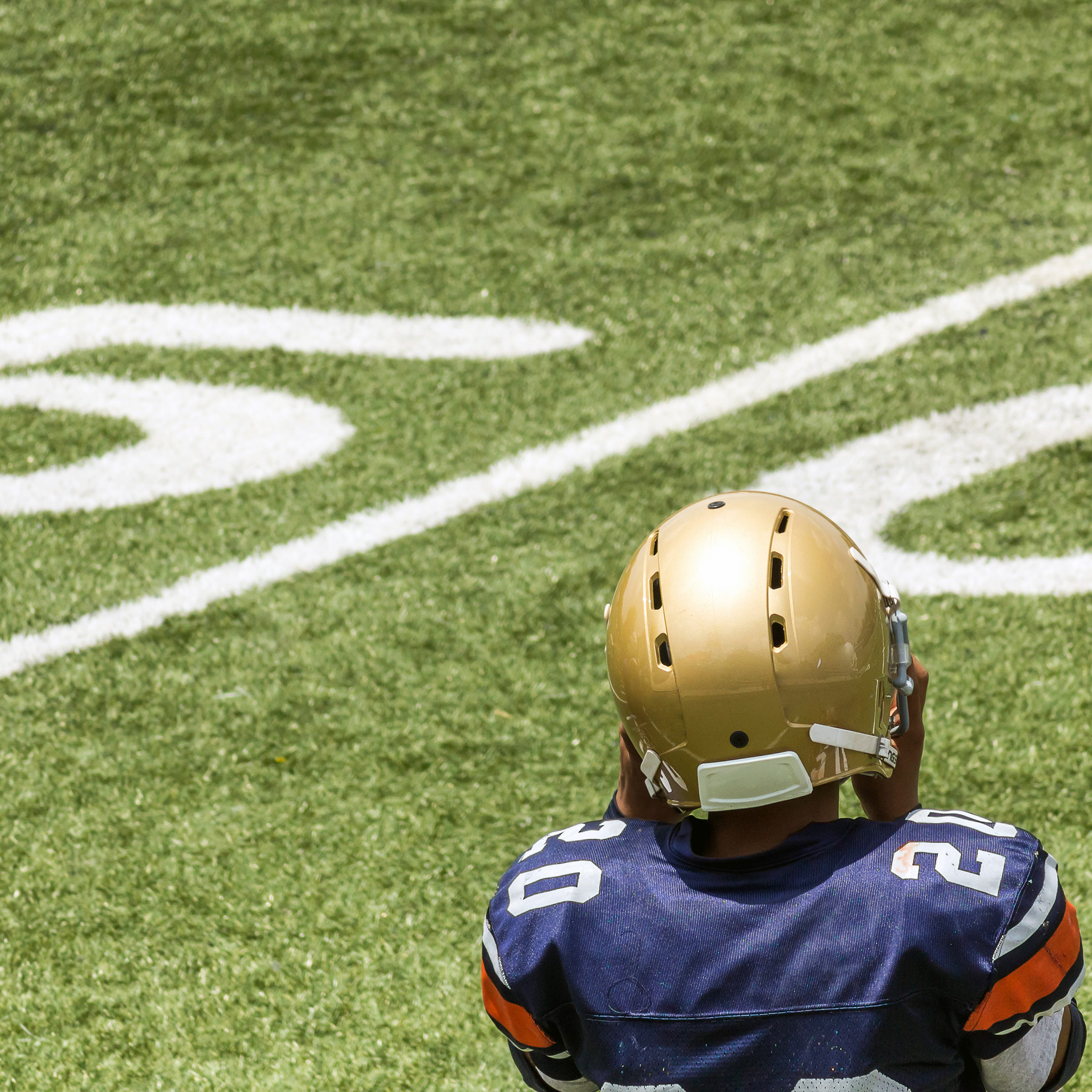Learn what to do — and what not to do — after a concussion.
A concussion, also known as a mild traumatic brain injury, occurs after impact to the head (or to the body that significantly jars the head) and causes a temporary alteration of consciousness. But several myths exist about what a concussion is and what to do after you or a loved one sustains such an injury. We asked Douglas Terry, Ph.D., a clinical neuropsychologist and co-director of the Vanderbilt Sports Concussion Center at Vanderbilt Neurosurgery to give us the facts about concussion care and to bust through the myths.
“We typically think of a concussion as a hit to the head that alters your mental status,” Terry said. “So that might mean you’re confused or disoriented, or you might have a gap in your memory at the time of the injury, or in some cases, you may lose consciousness for a few seconds or minutes.” An athlete who gets hit out on the field, for example, may not have a memory of one’s teammates helping them to the bench. However, an actual loss of consciousness, Terry added, is relatively uncommon, occurring in roughly 10% of concussions.
Additional acute symptoms may include a headache, dizziness, fatigue and sensitivity to light and noise. Those symptoms could linger for a few days, along with sleep and focus issues.
Myth: All concussions require a visit to the emergency room.
If you suspect you or a loved one has a concussion, it’s a good idea to visit urgent care or to call your primary care doctor. “But we’re typically not worried about life-threatening difficulties that would necessitate a high level of care like at an emergency department,” Terry said.
Fact: Red flags indicate the need for emergency care.
“There are some signs that you should go to the ER,” Terry said. “Those signs would be concerning and may be suggestive that what’s going on may be more than a concussion and that it actually might be a more serious brain injury or brain bleed.”
Watch for severe concussion signs like difficulty in keeping the eyes open, convulsions, unusual behavior, slurred speech, severe and unrelenting headache, or if someone is dazed and confused beyond just a few minutes. Vomiting initially after impact is not uncommon, but repeated vomiting is cause for concern.
Myth: You can’t let someone with a concussion fall asleep.
“If someone has a concussion and they don’t have any red flags,” Terry said, “it’s perfectly OK for them to go to sleep.” If fact, Terry said, depriving someone of sleep might increase symptoms such as poor concentration, headaches, and irritability — making it difficult to tease apart which symptoms are related to the concussion and which symptoms are related to the sleep deprivation.
Fact: If someone exhibits red flags, keep them awake.
Although a person can get some rest when exhibiting the typical concussion symptoms, if they are showing signs of the red flags mentioned, keep them awake and seek immediate medical attention.
Myth: You must be on bed rest until you concussion symptoms completely resolve.
“Do we want you to take it easy for the first one to three days after a concussion? Yes,” Terry said. “But do we want you to cocoon yourself in a dark room for several days or weeks? No.”
Research shows that strict rest beyond a few days is associated with worse outcomes, such as longer time to concussion resolution, worse psychological symptoms and deconditioning. Deconditioning is when your brain and body become “out of shape” because they’re doing so little. When someone becomes deconditioned, they may find that doing normal activities increases their symptoms — but this may not be because of the concussion, but rather, could be more related to the fact that their brain and body aren’t used to these activities anymore.
Fact: Concussion recovery is an active process.
“It’s important to remember that most research suggests a single concussion does not cause any long-term cognitive issues. Most people recover completely within a couple weeks.”
“A more active recovery process is associated with quicker recovery times,” Terry said. Activity levels can start to return to normal a few days after a concussion. He added that it is helpful to start with activities around the house or to try a short walk and see how you feel.
Students can typically return to school within a few days, starting with half days at first. And same with returning to work. “If you develop a headache,” he said, “take a step back and try a task again in an hour or two.” You may find that making accommodations — such as turning the brightness down on screens — helps during the first few days following the concussion. But you will slowly want to decrease your use of these accommodations so your brain can slowly and safely learn to tolerate normal sensory input.
“If you are having difficulty engaging in these active recovery processes,” Terry said, “or if symptoms last more than a couple weeks, then it would be time to see your doctor and try to come up with a more specific plan that might involve some specialists.” Specialists can help treat lingering symptoms, such as headache or balance issues.
“It’s important to remember that most research suggests a single concussion does not cause any long-term cognitive issues,” Terry said. “Most people recover completely within a couple weeks.”

Tennessee’s only Sports Concussion Center
Vanderbilt has the only Sports Concussion Center in Tennessee staffed by specially trained sports medicine doctors, neurosurgeons, neuropsychologists, physical and occupational therapists and certified athletic trainers. Our team has the expertise and technology to manage all aspects of concussion care, starting with baseline concussion testing and extending to evaluation and treatment. If you’d like to learn more, or to schedule baseline concussion testing, visit our Sports Concussion Center page below.

